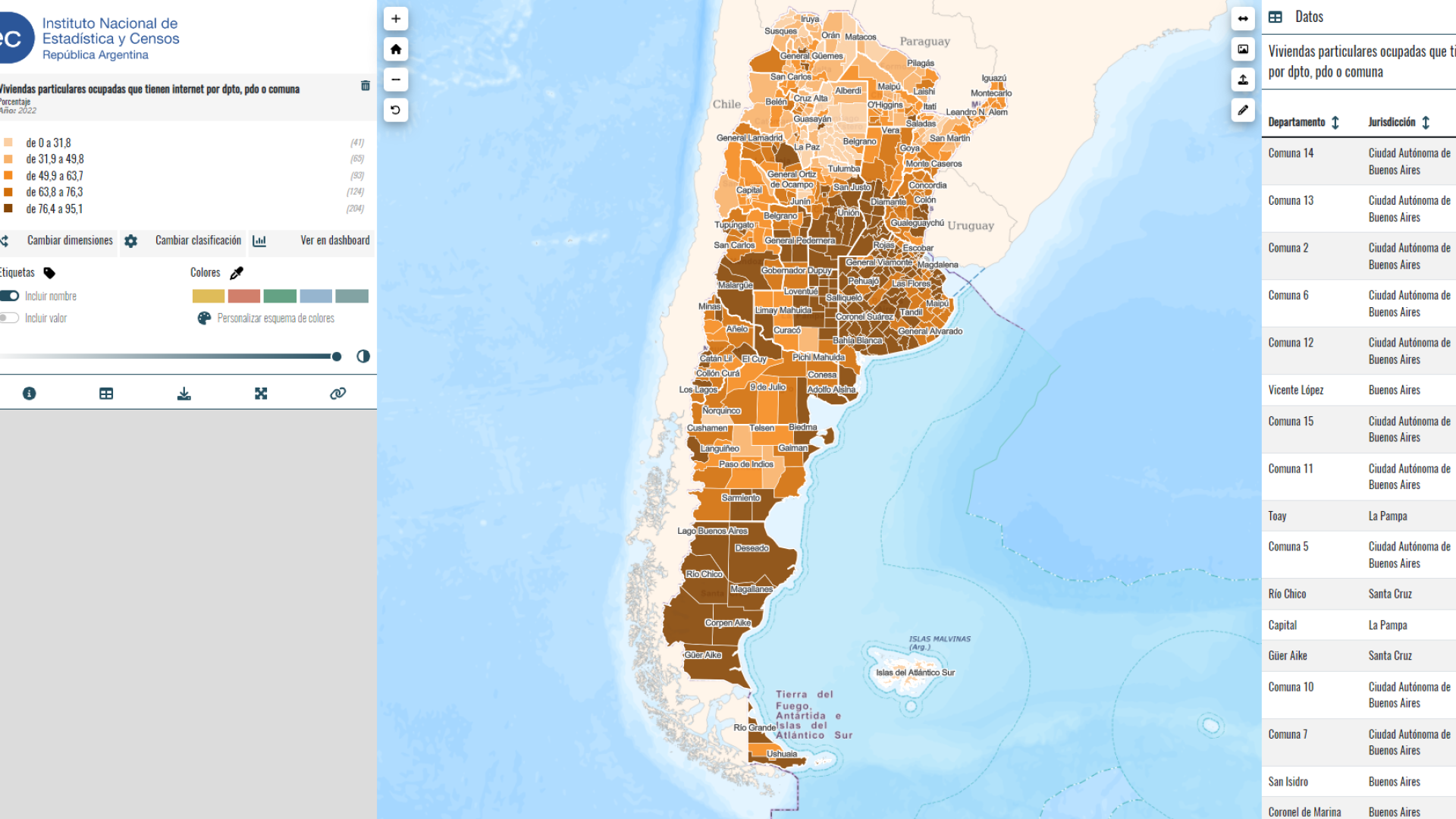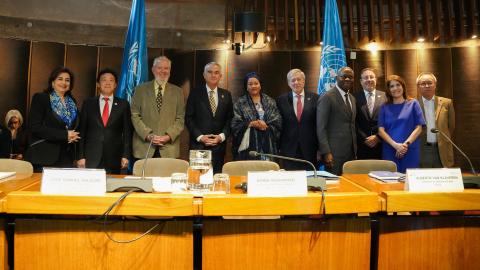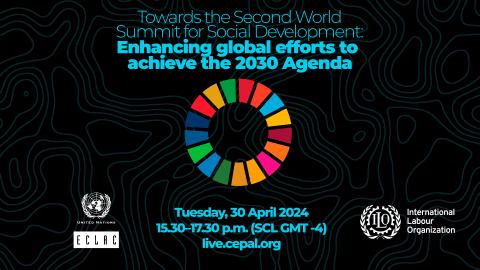Briefing note
The Executive Secretary of the Economic Commission for Latin America and the Caribbean (ECLAC), Alicia Bárcena, urged the region’s countries to forge new political and social compacts to resume the path of economic growth – fortifying investment and diversifying the productive matrix – and to combat persistent social inequality, which she described as “one of the great scourges in the region, which conspires against everything.”
During a session of the World Economic Forum on Latin America 2017 being held in Buenos Aires, Argentina, Bárcena indicated that “if we want to have a future, we have to profoundly change the development pattern,” using the 2030 Agenda for Sustainable Development approved by the United Nations in 2015 as a guide.
The meeting, inaugurated on Thursday by Argentine President Mauricio Macri and Klaus Schwab, Founder and Executive Chairman of the World Economic Forum (WEF), brings together global and regional leaders from the business community, the governmental sector and civil society to share strategic ideas about the inclusive future of Latin America.
On the panel entitled Rethinking Market Capitalism, Bárcena indicated that “we must rethink capitalism in terms of moving toward equality with entitlement to rights,” through the creation of “new political and social coalitions that allow for changing the conversation between the State, the market and civil society.”
The senior United Nations representative debated with Leonel Fernández, former President of the Dominican Republic and current President of the Global Foundation for Democracy and Development; Felipe Larraín Bascuñán, Director of the Latin American Center for Economic and Social Policy at Chile’s Universidad Católica; Daniel Zovatto, Director for Latin America and the Caribbean of the International Institute for Democracy and Electoral Assistance; and Mauricio Lazala, Deputy Director of the Business & Human Rights Resource Centre, with Carlos E. Cue, a journalist from El País newspaper, moderating.
In another session, entitled The Economic Outlook for Latin America, Bárcena expressed that Latin America and the Caribbean, whose economy is seen expanding 1.3% in 2017 after two years of contraction, has cautiously confronted the international context of low growth and of uncertainty produced by the revision of free-trade treaties at a global level.
Inflation is relatively controlled (at around 8.3% on average, excluding Venezuela), along with the current account deficit (2.2% on average), she said. International reserves have increased and sovereign risk has improved, which opens options for external financing, although public debt has risen, she stated.
“The region has not managed to appropriately fortify investment,” public or private, to resume the high rates of growth observed in recent years, Bárcena asserted. “By the end of 2016, gross fixed capital formation growth rates in the region had experienced 11 straight quarters of decline.”
Nor has Latin America and the Caribbean been able to take advantage of intraregional trade, which has fallen in recent years, and it has not made enough progress in the fight against tax evasion and avoidance, she indicated on the panel she shared with Nicolás Dujovne, Argentina’s Minister of the Treasury; Dulcidio De La Guardia, Panama’s Minister of Economy and Finance; David A. Lipton, First Deputy Managing Director of the International Monetary Fund (IMF); and Guillermo Ortiz, Chairman of investment bank BTG Pactual Latin America. John Paul Rathbone, Latin America editor for The Financial Times, acted as moderator.
“As long as we don’t break with the culture of privileges, Latin America and the Caribbean will not be able to advance toward shared prosperity,” said Bárcena, who called for incorporating phenomena such as migration and the “economic nationalism” seen in some developed countries into the current economic debate. “Figures indicate that 30 million Latin Americans live outside the region, 20 million of them in the United States (11 million of whom are undocumented),” she stated.
Earlier, during the panel on Responsible Extractives Development for Latin America, ECLAC and the World Economic Forum made a joint call for establishing a regular high-level dialogue among governments, companies in the extractive sector and civil society in Latin America and the Caribbean, focused on the achievement of the 17 Sustainable Development Goals (SDGs) of the 2030 Agenda.
One experience in this vein is the Responsible Mineral Development Initiative (RMDI), launched in June 2010 by the WEF with the aim of better understanding and seeking solutions to the challenges and complexities of responsible and sustainable mining development.
In the session on Implementing SDGs & New Urban Agenda in Cities, Bárcena described the main trends in terms of the region’s urbanization, which are condensed in ECLAC’s document entitled Sustainable and Equal Cities in Latin America and the Caribbean: Six Key Messages.
The senior official particularly stressed some challenges related to gender equality, migration flows and the gathering of information, including both traditional sources of statistics as well as geospatial information and big data analytics.
On that panel, Bárcena also announced that ECLAC will host on October 3-6, with the WEF’s support, a Sustainable Cities Week, which will include a public-private dialogue about the regional implementation of the New Urban Agenda adopted in 2016 during the Habitat III conference held in Quito, Ecuador.



